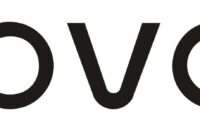First-of-its-Kind Low Profile, High Continuous Flow Device May Reduce Risk of Vascular Complications Associated with Current Devices
Phoenix, AZ – Findings from the first-in-human trial of a novel percutaneous ventricular assist device (pVAD) were presented today as late-breaking clinical research at the Society for Cardiovascular Angiography & Interventions (SCAI) 2023 Scientific Sessions. The initial results demonstrated that Supira Medical’s low profile, high continuous flow device allowed for successful procedure completion for patients undergoing high-risk percutaneous coronary interventions (PCI).
PCI is a non-surgical procedure that uses a catheter to place a stent and open blood vessels in the heart that have been narrowed by plaque buildup. Commonly used during these interventions in high-risk patients, pVADs are mechanical pumps that provide hemodynamic blood flow. Current FDA-approved pVAD devices typically have large profiles and are associated with high rates of morbidity and vascular complications such as vessel injury requiring surgical repair, loss of limb, hematoma, and/or acute limb ischemia.
Supira’s novel low profile system aims to support cardiovascular hemodynamics with minimal hemolysis and a low risk of vascular complications for patients undergoing high-risk PCI and those in cardiogenic shock, a condition in which the heart is suddenly and/or chronically damaged and cannot support flow into the vital organs.
This first-in-human (FIH) study aimed to demonstrate the safety and performance of Supira’s low profile, high continuous flow system for cardiovascular hemodynamic support during high- risk PCI. As part of this prospective, single-arm, single-center study, six patients underwent high-risk PCI with the Supira system. Primary endpoints included procedural and safety outcomes. Procedural success was defined as safe implantation of device, hemodynamic support during the PCI, and successful withdrawal of the device. Safety assessment was defined as freedom from device-related major adverse events (MAE), including vascular complications (access and central), aortic valve injury, mitral valve injury, and systemic embolization.
Procedural success was 100% and none of the patients treated with the Supira system experienced device-related adverse events peri-procedurally. Additionally, no early indicators of clinically significant hemolysis were reported. Patient were age 58±9 years, 83% male and a body mass index of 30±2. Comorbid conditions consisted of prior heart attack (66%), diabetes (50%), tobacco use (50%) and pulmonary hypertension (50%). The ejection fraction ranged from 30-60% with at least 2 vessels treated in 66% of the patients. The device support time ranged from 42-96 minutes.
“Initial safety results of the Supira’s pump performance are promising and point to a meaningful advancement which could allow more operators to confidently perform high-risk PCI procedures while avoiding vascular complications,” said Gagan Singh M.D., M.S., Director of Clinical Cardiovascular Research at University of California, Davis, presenting author and study lead. “This system features a unique combination of low profile and high continuous flow that offers the potential to minimize vascular complications and hemolysis while aiming to provide operators with a single device for multiple pVAD indications.”
The Supira system is currently in its research and development phase and is not available for sale in any geography. The company is currently planning additional studies outside the U.S. followed by the initiation of a U.S. early feasibility study planned for Q4 2023.
Session Details:
“First-in-human experience with a novel (low profile, high flow) percutaneous ventricular assist device Trial” [Thursday, May 18, 2023, 4:30 – 5:30 PM MST, West 103, First Floor, Phoenix Convention Center] M MST]






